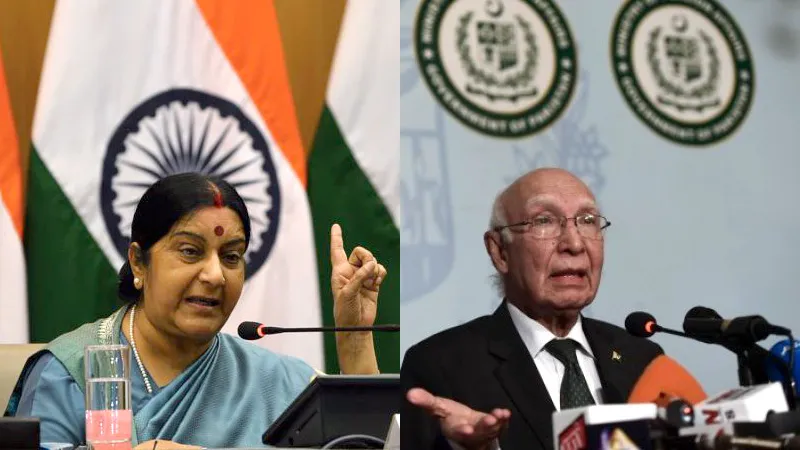In Uttar Pradesh, the recent retaliatory commando raids across the LoC have taken on a new meaning. On Dussehra, PM Narendra Modi appeared at a Ram Lila in Lucknow, holding a faux sudarshan chakra. Across the state, posters featuring Modi, defence minister Manohar Parrikar, home minister Rajnath Singh and assorted BJP leaders have been plastered, along with silhouettes of soldiers, hailing the triumph of the “avengers of Uri”.
In the recent narrative, India seems to have had three military victories: The unambiguous triumph that led to the creation of Bangladesh in 1971, the somewhat ambiguous Kargil victory of 1999, and now, the “surgical strikes” of September 30, 2016, which have been declared to be a great victory, even though it has not quite achieved its goal — getting Pakistan to dismantle its terrorist infrastructure.
The war of 1971 lasted two weeks, with the loss of more than 3,800 officers and jawans. The Kargil operation lasted roughly two months with the loss of some 470. In the surgical strike, which lasted several hours, fortuitously no one was killed.
The reason why the government is furiously making all kinds of claims, including that the Indian Army is now as good as the one of Israel in counter-terrorism, has to do with electoral politics. The use of military achievements to win elections is not new. But conflating a limited border operation to a military triumph certainly is, especially as it is aided by sections of an over-the-top media that seems to have lost its balance. The army itself has been low-key and the DGMO’s statement announcing the attacks was factual and made none of the claims subsequently adduced on their behalf.
Elections have played a role in all three victories. In March 1971, Indira Gandhi called for general elections and crushed the Opposition, in the main the dissident Congress and Jana Sangh. Strengthened enormously, she began the military-diplomatic moves that led to the surrender of the Pakistani army and the break-up of the country. Months after the war, in March 1972, she called for elections to 16 assemblies and the Congress swept them all.
In 1999, having been voted out of power in the midst of the Kargil crisis, Atal Bihari Vajpayee went to the polls with the “Kargil victory” as a slogan, accompanied by the same kind of media hype we see today. It didn’t wash, the BJP managed to win 182 seats, the exact number it had in the outgoing Lok Sabha. But it formed the government because the Congress did particularly badly.
The assembly elections in UP are due in a few months. At this juncture, we can only guess on the outcome, but one thing that is clear is that the BJP is going all out to make the maximum political use of what it says is a famous “victory”.
The surgical strikes are witnessing some of the repeat of the Kargil scenario, when the ruling party raised the din of the victory so high that the failure to detect intruding Pakistanis for several months was papered over. TV studios have constructed their own war room sets complete with anchors in war correspondent’s gear.
What would Indira Gandhi have said of Parrikar’s claim that “Like Hanuman, Army didn’t know its power, I made our armed forces realise their power”? Just how a supposedly cultural organisation like the RSS inspires a tactical military strike is another unfathomable mystery.
Parrikar insists that the strikes have been the most outstanding achievements of the army in the past 30 years. In claiming this, he does grave disservice to the brave personnel who have conducted such operations since 1993, sometimes going deeper into Pakistan-occupied Kashmir than the soldiers did this time.
In democracies, using military achievements for elections are not unusual. But it’s worth looking at the outcomes of our listed “victories”. Indira Gandhi squandered her mandate, and < class="aBn" tabindex="0" data-term="goog_465121790">< class="aQJ">in three years declared the Emergency. Vajpayee wisely consolidated the NDA and ordered the Kargil inquiry, which led to the first systematic reform in India’s defence system since the mid-1960s.
It is one thing to declare that our army is the best in the world, it’s quite another thing to be taken in by one’s own rhetoric. There are lots of gaps in the army’s organisation, equipment, doctrine and professional education. As defence minister, Parrikar’s first job is to address these issues, not win elections.
Modi has now signalled a zero tolerance for jihadi activity so he is now committed to respond each time an incident occurs. But we are still a long way from cracking the tough Pakistani nut and getting it to abandon support to terrorism. The strikes have been a great tactical success, but the real triumph will be in achieving a strategic shift in Islamabad. The strikes are only one element in what could be a sophisticated strategy of compellence; however, that strategy is already in danger of getting derailed by the premature celebrations of victory.
This commentary originally appeared in The Hindustan Times.
The views expressed above belong to the author(s). ORF research and analyses now available on Telegram! Click here to access our curated content — blogs, longforms and interviews.




 PREV
PREV


